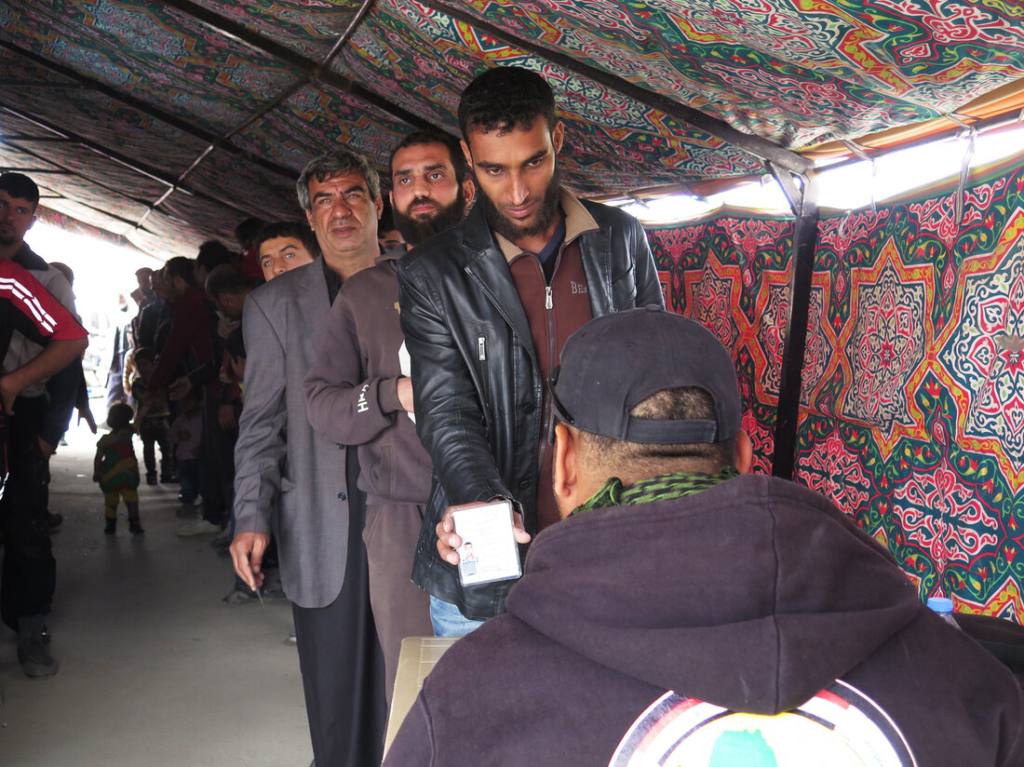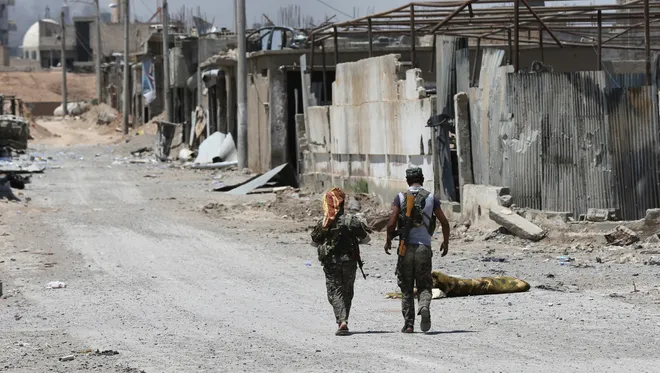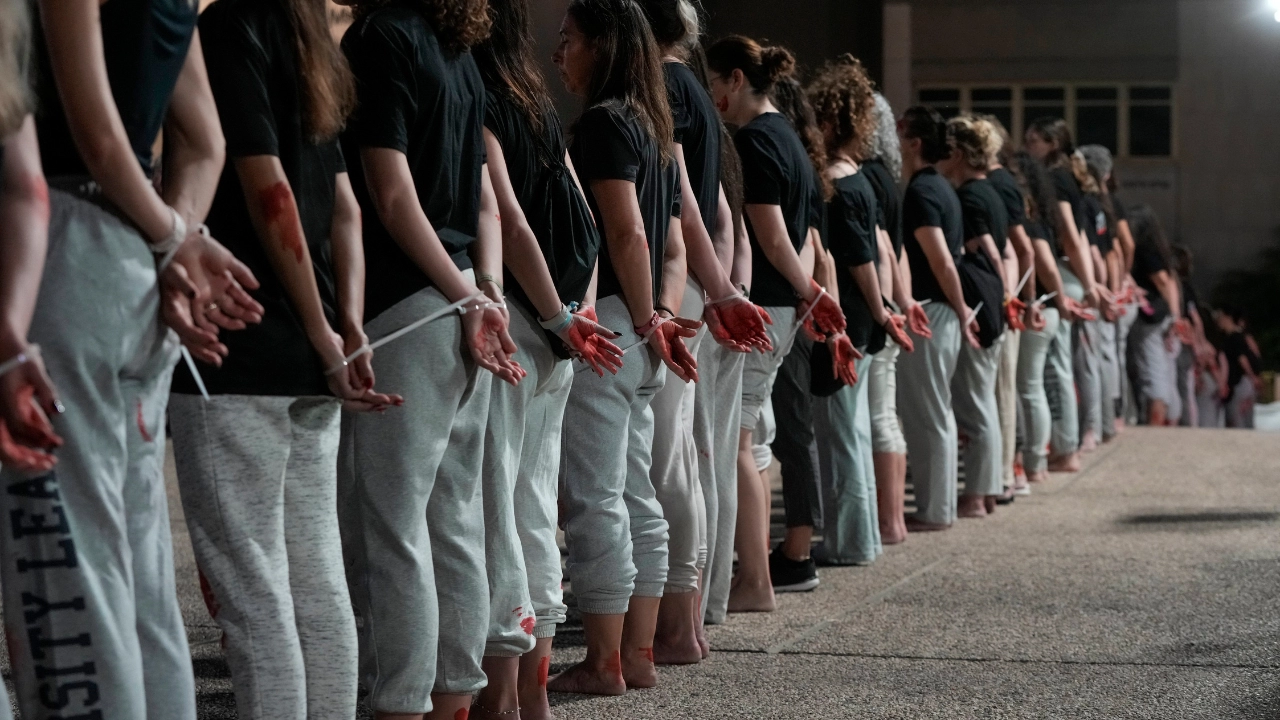The horrifying story of Fawzia Amin Sido, a 21-year-old Yazidi woman Hostage Rescued From Gaza, is one of unimaginable suffering and cruelty at the hands of ISIS. Held in captivity for more than a decade, Sido’s experience is a stark reminder of the extreme brutality inflicted on thousands of Yazidi women and children during the height of ISIS’s reign of terror.
Fawzia Amin Sido was recently rescued from Gaza by the Israeli Defence Forces (IDF) and the U.S. embassy, ending a nightmarish ordeal that began when she was only 11 years old.
Sido’s account, shared with British documentary filmmaker Alan Duncan, sheds light on the incomprehensible atrocities committed by ISIS, and the trauma endured by its captives. Her harrowing story is one among many that continue to emerge as survivors escape the grip of ISIS and share their experiences with the world.
These stories, often difficult to fathom, are crucial in understanding the full scope of ISIS’s reign of terror, particularly the targeted persecution of the Yazidi community.
The Capture of Fawzia Amin Sido
Fawzia was only a child when ISIS militants stormed into her community in northern Iraq, rounding up Yazidis in a targeted campaign of violence and oppression. ISIS’s war on the Yazidi people was marked by mass murder, abductions, sexual violence, and enslavement.
Read : Gaza’s Agriculture Crisis Deepens as 67.6% of Cropland Damaged
It is estimated that around 5,000 Yazidis were killed, while over 10,000 were taken hostage. Among those taken were women and young girls like Fawzia, who were subjected to years of physical and psychological torment.
Fawzia recalls the terror of being kidnapped at just 11 years old. Separated from her family, she was thrown into the dark world of human trafficking, forced into captivity by the brutal regime of ISIS fighters.
Read : Over 400 Migrants Brought into the US by ISIS-Linked Network
For over a decade, she was bought and sold by militants, moving from one captor to another, each time enduring more suffering and trauma. Fawzia’s story, like many Yazidi women who were kidnapped, is marked by repeated violations of her human rights and dignity.
Forced to Eat the Meat of Babies
One of the most grotesque aspects of Fawzia’s captivity was the revelation that she, along with other hostages, was forced to eat the cooked meat of slaughtered babies.
This gruesome detail was revealed during her conversation with Alan Duncan, where she recalled a time when she and her fellow captives were so hungry that they ate what was placed in front of them. They had no idea that the food contained human flesh until they started feeling sick afterward.

“They cooked rice and also meat and brought it to us. Because we were so hungry, we just ate what was on the table,” Fawzia said. While they were eating, they realized that something was wrong. The food tasted strange, but their hunger drove them to continue eating.
It wasn’t until after they had consumed the food that ISIS members cruelly revealed that the meat they had eaten was that of slaughtered babies. This sickening act of psychological and physical abuse is a testament to the level of depravity ISIS was capable of.
Nine Months in an Underground Prison
Fawzia’s captivity was not just marked by sexual violence and forced cannibalism; she also endured months of imprisonment in unbearable conditions. She was held for nine months in an underground prison, where she, along with other captives, never saw sunlight. Living in complete darkness, with barely enough food and water to survive, Fawzia experienced a level of isolation and hopelessness that is difficult to comprehend.
“We were held in the dark the whole time. We never saw the sunlight. We were in a prison, we didn’t do anything, we couldn’t go outside. We had to drink dirty water, some children died,” Fawzia recounted. The conditions in the prison were inhumane, and the captives were completely cut off from the outside world.
Children died as a result of malnutrition and lack of medical care, while the adults lived in constant fear of being taken away by their captors for even more unimaginable horrors.
Fawzia’s words paint a bleak picture of what life was like for the Yazidis under ISIS control. Women and children, in particular, were vulnerable to abuse, with many young girls being taken away by ISIS fighters who saw them as nothing more than objects for their own gratification.
Fawzia described how ISIS militants would enter the prison and take girls with them, often never to be seen again. “These men came in and if they liked a girl, they took them with them,” she said.
Bought and Sold by ISIS Fighters
Throughout her captivity, Fawzia was bought and sold multiple times by different ISIS fighters. The concept of human life meant nothing to these militants, who treated Yazidi women and girls as commodities to be traded.
Fawzia revealed that she was bought and sold five times by ISIS fighters, each time being passed on to another captor who continued the cycle of abuse. Her fifth captor, a Palestinian ISIS militant, was responsible for some of the most horrific abuses she endured.
At just 15 years old, Fawzia was raped by this militant, who drugged her in order to overpower her. Fawzia recalled how she initially tried to hide from him, terrified of what he might do to her. “At the beginning, I would hide in the bathroom until he was asleep because I didn’t know what he wanted from me.
I was scared. I didn’t want him to do anything,” she said. However, the militant soon noticed her attempts to hide and began drugging her to prevent her from escaping his control.

“One day he gave me drugs, and I fell asleep, and he raped me,” Fawzia recounted. The trauma of that experience would stay with her for years, as she continued to endure sexual abuse at the hands of her captors. The systematic rape of Yazidi women by ISIS fighters has been well-documented, with thousands of women suffering similar fates during the group’s brutal reign.
The Ongoing Trauma and Struggle for Justice
Fawzia Amin Sido’s story is one of survival, but it is also a reminder of the ongoing trauma faced by Yazidi women and girls who were held captive by ISIS. Even after being rescued, many of these survivors continue to struggle with the emotional and psychological scars left by years of abuse. The road to recovery is long and difficult, and many Yazidi survivors face immense challenges in rebuilding their lives after their horrific experiences.
Fawzia Amin Sido’s story, like so many others, is also a call for justice. While many ISIS fighters have been captured or killed, there are still those who have escaped accountability for their crimes.
The international community continues to push for justice for the Yazidi people, with calls for the prosecution of ISIS members for war crimes, crimes against humanity, and genocide. The systematic targeting of the Yazidi community by ISIS, along with the sexual violence inflicted upon Yazidi women, constitutes one of the most heinous crimes of the 21st century.
The Yazidi Genocide and the World’s Response
The atrocities committed against the Yazidi community have been widely recognized as genocide by numerous international organizations and governments. The United Nations, in its report on ISIS’s actions, confirmed that the group had committed genocide, crimes against humanity, and war crimes against the Yazidis.
The world was horrified by the accounts of mass killings, sexual violence, and the enslavement of women and children.

Despite the international recognition of these crimes, the Yazidi people continue to face immense challenges. Many survivors, like Fawzia Amin Sido, struggle with the trauma of their experiences, while others remain in refugee camps or displaced within Iraq. Rebuilding their communities and ensuring justice for the survivors of ISIS atrocities remains a significant challenge.
Efforts to provide support to Yazidi survivors, including psychological care, legal assistance, and efforts to reunite families, have been ongoing. The international community has pledged to continue supporting the Yazidi people in their quest for justice and recovery, but the scars of ISIS’s reign of terror will take many years to heal.
A Story That Must Be Told
Fawzia Amin Sido’s story is a haunting reminder of the depths of human cruelty. The atrocities committed by ISIS against the Yazidi people, particularly the women and children who were taken as hostages, must never be forgotten. Her survival is a testament to her strength, resilience, and the will to overcome the unimaginable.
As more survivors of ISIS’s brutality come forward to share their stories, it is crucial that the world listens, acknowledges their pain, and continues to seek justice for the Yazidi people. Fawzia’s story is not just a reminder of the horrors of the past—it is a call to action to ensure that such atrocities are never repeated.

